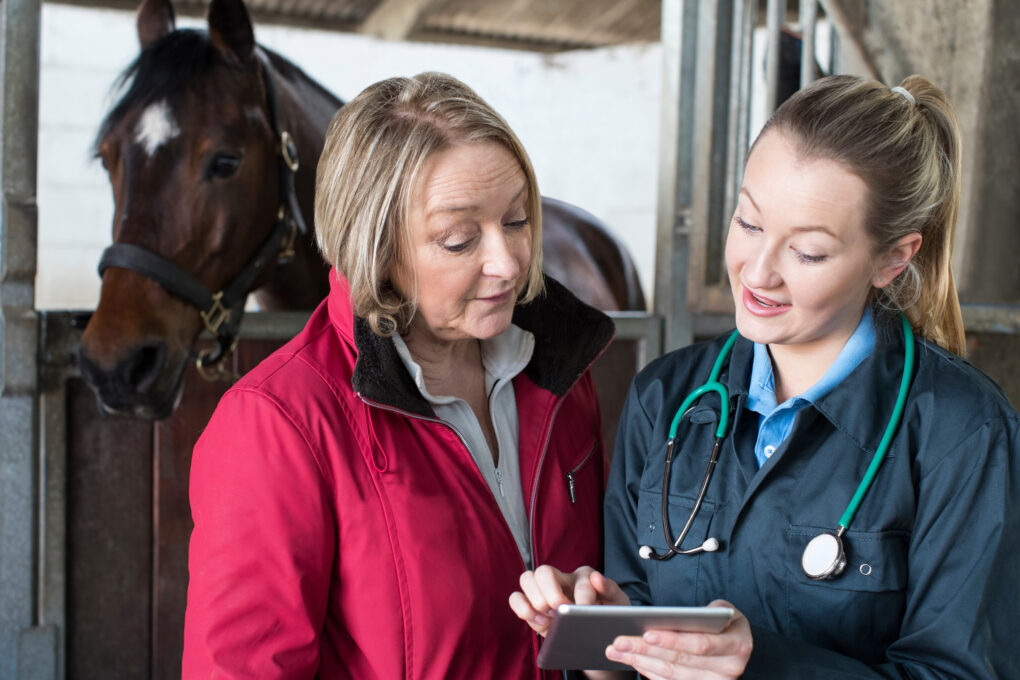Author(s): Britten, N. and Mahendran, S.
Published in: Veterinary Record
Date: September 2024
DOI: https://doi.org/10.1002/vetr.4703
Type of access: Open access
(click for full article)
Our summary
Britten, N, and Mahendran, S. (2024) Environmental sustainability and ruminant production: A UK veterinary perspective. Veterinary Record, e4703.
The aim of this review was to increase the awareness of UK veterinary practitioners of the impact of their work on sustainable agriculture practices by outlining the importance of sustainable ruminant production, the metrics that are used to measure sustainability, and how the different aspects of ruminant production impact sustainability.
Environmental sustainability is an important issue within the livestock industry and for farmed ruminants in particular. In this context sustainability means meeting current, and future, production needs whilst ensuring long term food security. Under the concept of ‘One Health’ veterinary surgeons have a professional responsibility to consider the implications of husbandry practices on the environment, and the animal and human health and welfare implications of any changes made for sustainability reasons.
The review discusses the interactions between animal welfare and sustainability and highlights the use of quantitative systems to evaluate welfare at the different stages of production. These systems allow for an estimation of overall lifetime welfare as a metric in the life cycle assessments that are used to evaluate the sustainability of farming systems. The use of carbon footprints as one means of evaluating the sustainability of a farm, and the variety of measurement tools available, is also considered.
Areas of livestock production that interact with sustainability and which involve veterinary surgeons are highlighted, these include feeding, where the use of increased proportions of dietary concentrates and other supplements have been trialled as a means of reducing methane emission, disease control as diseases can lead to reduced production efficiency and increased emissions, breeding and housing.
The review concludes by stating that whilst research on many aspects of sustainability in livestock production is currently limited, sustainability is an area of increasing research activity and is likely to see substantial change in the near future.
Take home
This review provides an overview of the current literature on sustainability in relation to livestock production, highlighting aspects that typically involve veterinary surgeons. Increased awareness of these interactions will help veterinary surgeons provide appropriate advice on matters of sustainability, whilst continuing to prioritise the health and welfare of livestock
The following may also be of interest
EFSA Panel on Additives and Products or Substances used in Animal Feed et al. (2021) Safety and efficacy of a feed additive consisting of 3‐nitrooxypropanol (Bovaer® 10) for ruminants for milk production and reproduction (DSM Nutritional Products Ltd). EFSA Journal, 19 (11), 6905. https://doi.org/10.2903/j.efsa.2021.6905
Jayanegara, A. et al (2018) Use of 3-nitrooxypropanol as feed additive for mitigating enteric methane emissions from ruminants: a meta-analysis. Italian Journal of Animal Science, 17 (3), pp. 650-656. https://doi.org/10.1080/1828051X.2017.1404945
van Gastelen, S. et al. (2024) Long-term effects of 3-nitrooxypropanol on methane emission and milk production characteristics in Holstein Friesian dairy cows. Journal of Dairy Science, 107 (8), pp. 5556-5573 https://doi.org/10.3168/jds.2023-24198
Green Team Vet [British Veterinary Association] [online] Available from: https://www.bva.co.uk/take-action/green-team-vet/ [Accessed 28 December 2024]
Vet Sustain: Championing sustainability in the veterinary professions [Vet Sustain] [online] Available from: https://vetsustain.org/ [Accessed 28 December 2024]
Next steps

Receive journal watch by email
